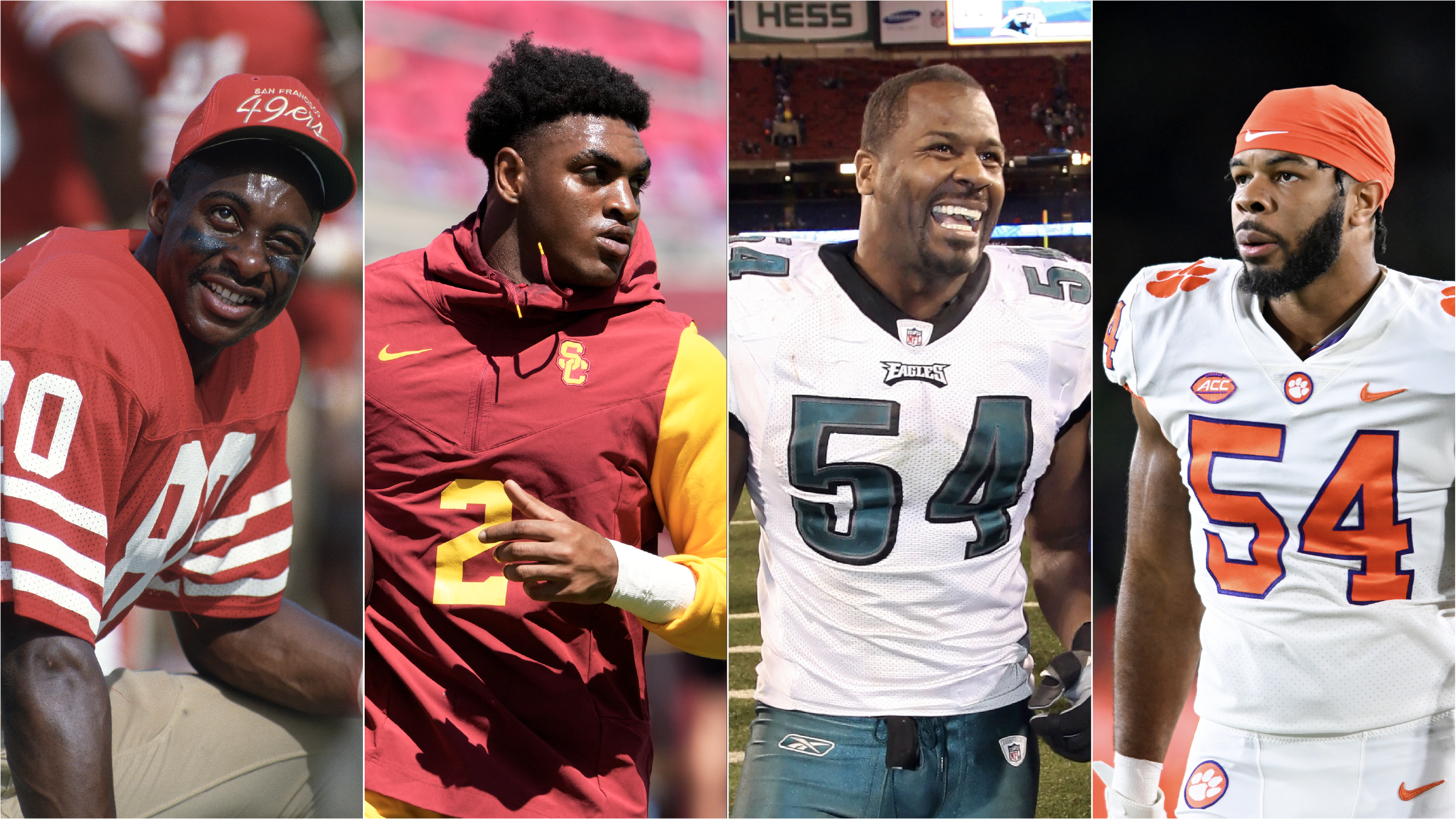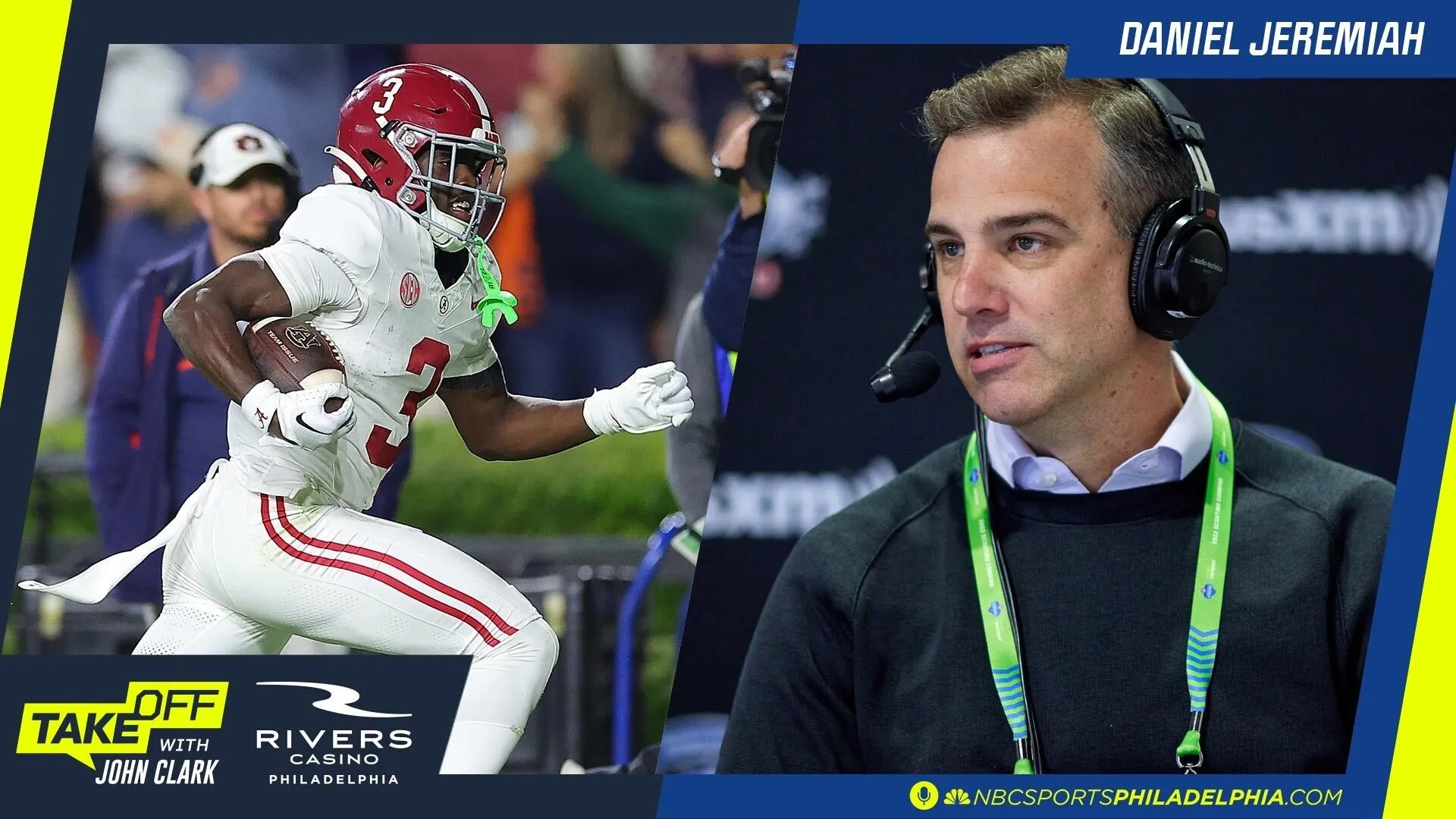Once again the Eagles didn't select a running back early in the draft, and for the first time in probably a quarter of a century, they don't have a de facto starting running back on the roster.
The Eagles haven't drafted a running back in the first three rounds since LeSean McCoy in the second round back in 2009.
And it's left the position without a proven back for the first time in a generation.
Ryan Mathews, a former Pro Bowler and two-time 1,000-yard rusher, remains on the roster but suffered a serious neck injury late last year and is unlikely to be with the Eagles moving forward.
Asked after the draft about Jason Kelce and Mychal Kendricks, Howie Roseman said, "We fully anticipate that they're going to be here moving forward."
But asked about Mathews, Roseman said, "Can I tell you anyone who's going to be on this team in September?"
See what he did there?
NFL
The Eagles can't release Mathews until he passes a physical, but if they do — when they do — they would save $4 million in cap space. If the injury-plagued Mathews spends the 2017 season on the roster, he'll count $5 million against the Eagles' cap. If they release him, they'll carry only $1 million in dead cap money.
So we'll operate under the assumption Mathews will be gone.
That leaves Wendell Smallwood, a fifth-round pick last year; 33-year-old Darren Sproles; and rookie fourth-round pick Donnel Pumphrey, who is the all-time FBS rushing leader but stands just 5-foot-8, 175 pounds.
Also on the roster are 2016 undrafted free agents Byron Marshall and Terrell Watson.
The Eagles haven't officially announced the signing of Corey Clement, but Clement tweeted out that he had agreed to terms here, and Roseman — without referring to him by name — said the Eagles had a draftable grade on the 5-foot-10, 220-pounder.
Clement, a graduate of Glassboro High School, ran for over 3,000 yards at Wisconsin with a 5.4 average and 38 touchdowns.
This collection of unproven backs is a real departure for an organization that from 1994 through 2014 brought you an uninterrupted running back lineage that went from Charlie Garner to Ricky Watters to Duce Staley to Brian Westbrook to Shady.
Watters was a free agent, but Garner, Staley, Westbrook and McCoy were all second- or third-round draft picks. All those backs were among the most productive receiving backs in the NFL over the last 20 years, although Garner's best years came with Oakland.
Before Watters, Herschel Walker was the regular starter for a few years, and the last couple years, we all knew DeMarco Murray and Mathews would be the lead backs.
Now?
As of now, your choices are a 5-foot-8 rookie fourth-round pick, a second-year fifth-round pick and a 33-year-old veteran who has averaged fewer than four carries per game in his career and has already said he plans to retire after the season.
The Eagles could conceivably sign a veteran, but so far they haven't shown any sign of being interested in taking that route. They certainly weren't involved with Jamaal Charles, who head coach Doug Pederson coached in Kansas City.
And knowing the way Roseman thinks, he'd certainly rather go young than haul in a high-priced 30-year-old veteran like LeGarrette Blount.
Can the Eagles go into the season with Smallwood, Pumphrey, Clement and Sproles?
If they do, Smallwood becomes the odds-on favorite to be the lead back.
There's no question the Eagles are high on Smallwood. He averaged a respectable 4.1 yards per carry last year, but in the three games he got double-digit carries — the Steelers, Falcons and Seahawks — he averaged 4.6 yards per carry.
It's certainly not lost on the Eagles' brass that in the team's two biggest wins last year — Atlanta and Pittsburgh — Smallwood ran a combined 30 times for 149 yards.
Smallwood did finish last year injured. He suffered a small tear in his MCL during a late-season game against the Redskins, but he's expected to be 100 percent for the start of the season.
The jury is still out whether Smallwood can handle a regular workload of 12 to 15 carries. He only had one year at West Virginia where he was the lead back, and he averaged over 20 touches per game in 2015, when he ran for 1,519 yards and caught 26 passes.
"Wendell is obviously coming off injury, so that's No. 1," Pederson said. "We've got to make sure he's 100 percent physically and ready to go there.
"I think Wendell has a role on this football team. It's something that we saw glimpses of last season when he had a chance to play."
Pumphrey, despite his size, emerged as a true workhorse at San Diego State. He had more than 200 more touches than any player in FBS over the last four years and averaged close to 22 touches over the last four years.
Last year, Mathews had 155 carries, Sproles 94, Smallwood 77, Kenjon Barner 27, Marshall 19 and Watson nine.
That's 381 carries, or about 24 per game.
How will it break down this year? The Eagles believe Smallwood can handle 12 to 15 carries, and if Pumphrey and Sproles get five or six each, that could be a workable system.
Clement is an interesting wild card, although undrafted running backs have rarely made a significant contribution to the Eagles.
The only undrafted running back to gain more than 20 yards in a season for the Eagles in the last 50 years is Vaughn Hebron in 1993.
"We're really excited to make sure that we got Pumphrey, and then we like the players that are in the building," Roseman said. "We've got some talent at that position, and we're excited to see them."


